R.I. Educators Travel to Their Students’ Native Guatemala, Led by RIC Professor
- News & Events
- News
- R.I. Educators Travel to Their Students’ Native Guatemala, Led by RIC Professor
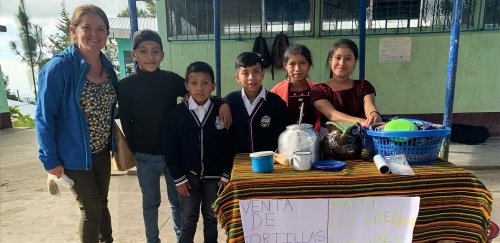
Rhode Island is an ethnically diverse community. “It’s important to know where our students come from so we can better support them in our schools.”
The largest number of Guatemalans in Rhode Island live and attend school in Providence and Central Falls.
It’s no wonder then why Erin Papa, RIC assistant professor of world languages education, would tap teachers in these cities to engage in four weeks of professional development in Guatemala.

“The goal,” she says, “was to immerse them in the language, culture, history and educational system. It’s important to know where our students come from, so we can better support them in our schools.”
Funded by a Fulbright-Hays grant, Papa led 14 educators to Central America from June 30 through July 29. Among the participants were three RIC pre-service students and five RIC in-service alumni.
The group first took a two-week course in Spanish, followed by a week-long course in the K'iche' language. Even for alumnus Roberto Vargas Tapia ’20, M.Ed. ’22, whose parents are from Oaxaca, Mexico, and whose first language is Spanish, this course turned out to be a learning experience.
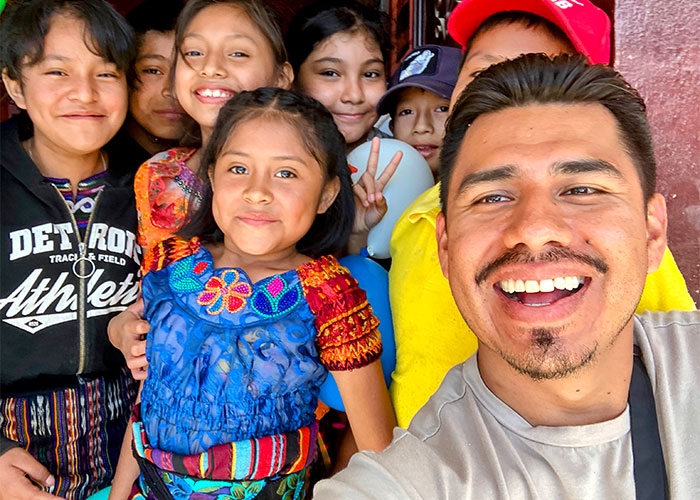
“Originally, I traveled to Guatemala with the goal of learning about the culture,” he says. “I teach third grade MLL students [Multilingual Learners/English Language Learners] in Central Falls, and 80 percent of my students are from Guatemala.
“But one of the first things I learnt in Guatemala is that Spanish is not the same all over the world. For instance, the word jacket is chumpa in Guatemalan and chamarra in Mexican, while the word blanket is chamarra in Guatemalan and cobija in Mexican.
“I now understand why my third-graders didn’t understand me when I said I ate tamales for dinner. To them, a tamale is far different in Guatemala from a tamale in Mexican culture.”
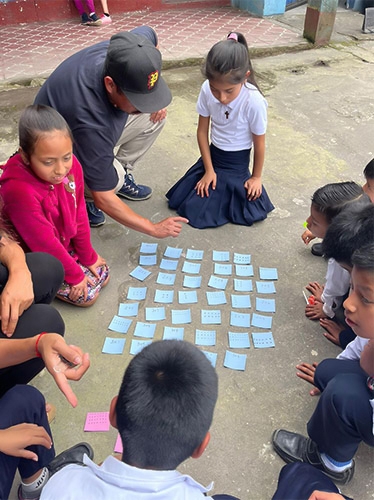
Vargas Tapia and the other educators went on to visit local schools. They observed classes and had the opportunity to facilitate instruction.
“I was deeply humbled by what I saw,” he says. “I noted that not all Guatemalan children have the opportunity to go to school – especially girls. They’re expected to stay home and learn household duties.
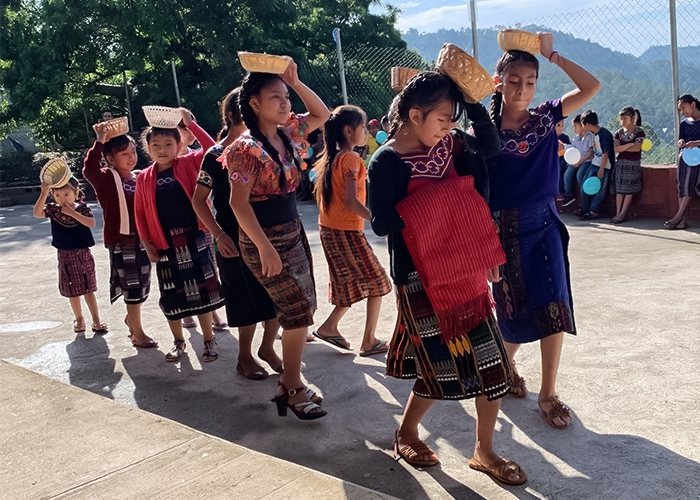
“In the rural areas, the majority of schools don’t have enough teachers and very little school supplies. In one classroom I visited, the teacher had around 30 students. School lasts for only three hours, from 8:30-11:30 a.m. I now understand some of the reasons behind Students with Limited or Interrupted Formal Education and why these students may lack the social, educational and basic academic language components,” he says.
In the fourth week, the group traveled to the Quiché region, where the schools are bilingual – both K'iche' (the region’s first language) and Spanish are spoken in that region.
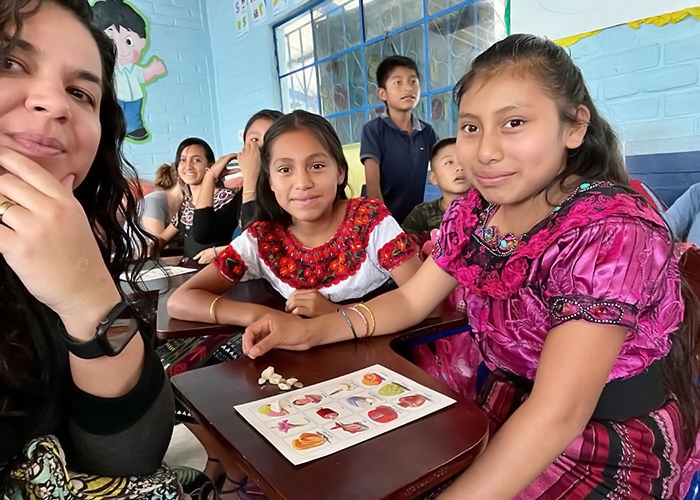
Larissa Guido Swenson, a grad student who is earning her M.A.T. in world languages education and prek-12 certification to teach Portuguese and Spanish, returned from the trip with a deeper understanding of multilingual learners.
“I’m now able to distinguish between the needs of native speakers, heritage learners and second-language learners in my world languages classroom,” she says. “I’ve also learned that reinforcing self-esteem in the classroom increases motivation and learning. It’s important to recognize and validate the linguistic discourses students bring to the classroom and find ways to use their proficiency as a bridge to language acquisition.”
“As our student demographics change,” Papa says, “it is important that educators have opportunities like this to acquire linguistic and intercultural skills through immersive experiences locally and abroad and to critically self-reflect in a supportive learning community.”
All participants in this program will be disseminating what they learned in a variety of formats.
Papa, along with some of the participants, will present their findings at the Rhode Island Foreign Language Association Conference held at RIC on Saturday, Oct. 14. Other participants will present at the RI-Teachers of English Language Learners Conference at RIC on Saturday, Oct. 28.
